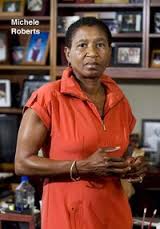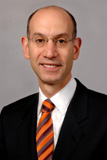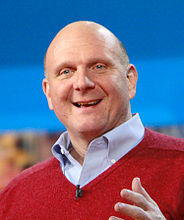 Those who thought David Stern’s retirement would remove the bombast in collective bargaining between the NBA and its players association underestimated Michele Roberts.
Those who thought David Stern’s retirement would remove the bombast in collective bargaining between the NBA and its players association underestimated Michele Roberts.
The veins may not be popping out of the temples; the face may not be as menacing as Lord Voldemort’s; the sound level may not be at Metallica decibels; but the new head of the players association made it clear again last week that Stern’s absence will make negotiations no less adversarial.
Roberts repeated criticism of certain elements of the current agreement that she expressed in a story on this site last month. In an ESPN story, Roberts even used the term “un-American,” which most working Americans who make slightly less than the average NBA salary of more than $4 million per year might find a bit hyperbolic.
 The surprising part of Roberts’ offensive – besides the point that players can’t opt out of the current agreement for another 25 months – was that she simply had some facts wrong, which is unusual for someone universally acclaimed as a brilliant trial attorney.
The surprising part of Roberts’ offensive – besides the point that players can’t opt out of the current agreement for another 25 months – was that she simply had some facts wrong, which is unusual for someone universally acclaimed as a brilliant trial attorney.
NBA commissioner Adam Silver has proposed that the current age requirement of 19 be increased to 20. Roberts is not a fan.
“It doesn’t make sense to me that you’re suddenly eligible and ready to make money when you’re 20, but not when you’re 19, not when you’re 18,” she said. “I suspect that the [players] association will agree that this is not going to be one that they will agree to easily. There is no other profession that says that you’re old enough to die but not old enough to work.”
Well, actually, there is – the NFL, which requires a player to be three years out of high school before he can be drafted.
I’m assuming that Roberts’ reference to dying, which seems odd language in a discussion about basketball, had to do with being old enough to go into the military. But sports is hardly the only place with an age requirement.
Consider police officers. A quick check on the web indicated there are age limits from 20-25 in Chicago, Los Angeles, Washington D.C. and Houston, among others. So at 18 or 19, you’re old enough in those cities to die in the military but not old enough to be a police officer, who is in far more danger of dying than a professional basketball player.
And as long as I’m at it, most if not all states require teachers to have degrees. So ruling out the Doogie Howsers of the world, there is an age limit of 21 for the average college graduate who wants to be a teacher.
Roberts also does not like the salary cap, saying, “I don’t know of any space other than the world of sports where there’s this notion that we will artificially deflate what someone’s able to make, just because. It’s incredibly un-American. My DNA is offended by it.”
I’m sure the Roberts would agree that the Teamsters, whose motto is “North America’s Strongest Union,” are very American. So I googled “Teamsters agree to contract terms” and found a UPS agreement where salaries and raises have been set – whether inflated or deflated – and there are clear limits (look on page 49).
 After the ESPN story appeared, Silver released a statement saying there is nothing “unusual or ‘un-American’ in a unionized industry to have a collective system for paying employees – in fact, that’s the norm.”
After the ESPN story appeared, Silver released a statement saying there is nothing “unusual or ‘un-American’ in a unionized industry to have a collective system for paying employees – in fact, that’s the norm.”
It may seem strange at this point to say I’m not trying to pick on Roberts. I have no problem with her trying to get as many millions out of billionaire owners as she can.
But her initial forays into a CBA discussion are as unproductive as Stern’s final ones were in the last round. The language used by both of them is better suited for the WWE or UFC than the NBA.
Silver is a veteran of collective bargaining negotiations, but he always reported to the boss. With Stern and former player head Billy Hunter gone, there will be a new dynamic in the next round, which, thankfully, won’t begin until the players opt out of the contract after the 2016-17 season.
To me, the most difficult issue is the age limit. Among active players, the top three scorers are Kobe Bryant, Dirk Nowitzki and Kevin Garnett. LeBron James is No. 7. None went to college. And, yes, I know Dirk and KG were both 19 in their rookie seasons.
But the larger point is that each of them – and also Kevin Durant and Carmelo Anthony, who had to go to college one year after the age limit was increased – were ready to play immediately after high school. So many aren’t. This year, 14 of the 44 players who were early entry candidates did not get drafted.
But should the gifted players be penalized? Let’s face it, Doogie Howser was a licensed physician at age 14. And, yes, I know that’s not the real world. But a 19-year-old young man traveling on charter jets and staying in luxury hotels while earning living playing basketball games is also not the real world for the overwhelming majority.
With the NBA’s new TV deal of $24 billion over nine years beginning in 2016, it’s reasonable to expect that money issues can be worked out. It would seem a 50-50 split of basketball related income is fair, but not for Roberts.
“Why don’t we have the owners play half the games?” Roberts said. “There would be no money if not for the players. . . . [30] more owners can come in, and nothing will change.”
Well, there’s a big qualifier there. If the 30 owners leave and take their staffs, much will change. Surely Roberts is aware that out of the 50 percent of BRI the owners get, they also pay for coaches, assistants, and staffs that include everything from sales reps to PR personnel to ticket-sellers to clean-up crews.
At one time, teams flew on commercial planes but now all have chartered jets. They’ve gone from three-star hotels to five stars. And what Mark Cuban started has become common – teams furnishing players with hot meals after every practice and every game. None of that comes out of the players’ revenue.
 When Steve Ballmer can pay $2 billion – about twice the value – for the Clippers, the players are correct to point out that the owners can’t play the “one-third of the teams are losing money” card because Mr. Ballmer has put himself in the position to lose money. That was a choice he made — and so have others — and the players are not responsible for that.
When Steve Ballmer can pay $2 billion – about twice the value – for the Clippers, the players are correct to point out that the owners can’t play the “one-third of the teams are losing money” card because Mr. Ballmer has put himself in the position to lose money. That was a choice he made — and so have others — and the players are not responsible for that.
And LeBron was also correct to say that considering the value of the new TV deal, any faint hint of poverty expressed by the owners “will not fly with us this time.” If some teams are not making money, then it is reasonable for the players to tell the NBA it should find a better way to distribute the owners’ share of revenues.
But I question the value of saber-rattling this far ahead of the summer of 2017. There is plenty of time to be argumentative. Why start now?
The players are going to be placed in a unique position because thus far, the reviews of Silver’s tenure have been glowing. He was efficient, decisive and committed during the Sterling controversy and he has made other moves that have been made him popular with players.
But they also hired Roberts to clean up the mess that Hunter left. So what is going to happen when a commissioner praised by the players clashes with an executive director empowered by the players?
With the incredible amount of money the NBA generates, it would seem that if both sides simply present the facts and tell the truth, an agreement can be reached easily.
Led by Roberts and Silver, there are going to be some very smart people in the room trying to make a deal. It would be nice if all come armed with their own individual brilliance rather than burdened by the pointlessness of bombast.
(RELATED: MICHELE ROBERTS Q and A WITH CHRIS SHERIDAN)
Jan Hubbard has written about basketball since 1976 and worked in the NBA league office for eight years between media stints. Follow him on Twitter at @whyhub.
CHECK OUT JAN HUBBARD’S ARCHIVE FROM SHERIDAN HOOPS.COM. TERRIFIC STUFF ON THE NBA, PAST AND PRESENT.